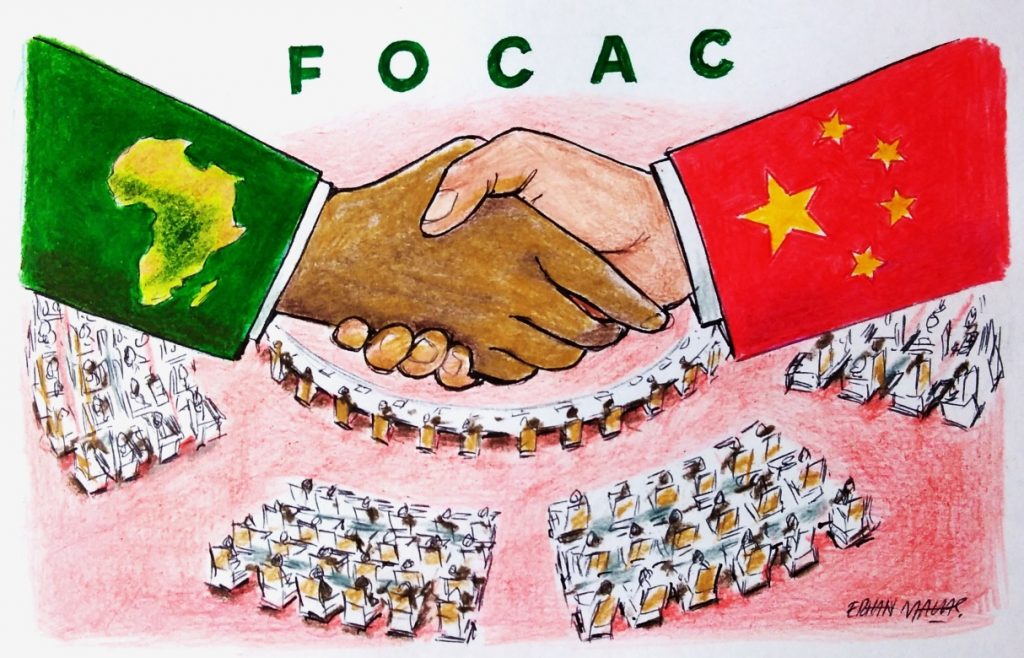By Gerald Mbanda

China still stands out as one of the countries in the world that had accelerated development in less than a generation. In 1949, China was ranked among the poorest countries in the world, after suffering decades of devastating Civil War. In 1960s, per capita income in China was mere US$89. Compared with some African countries at the same time such as; Congo, $220, Cote d’Ivoire $153, Ghana $183, Kenya $97, Liberia $170, Nigeria $93, Senegal $247, and South Africa $433, were all richer than China. In a period of 65 years, China has leapfrogged to become the second richest country in the world.
Although there are many factors at play that enabled China to have such an accelerated economic growth such as; good governance, enabling policies, long-term planning and implementation, control of corruption and the resilience of the Chinese people, there is nothing that China brought from Mars. It was all about the Chinese leadership and its people that made it happen. It should also be well understood that unlike many western countries that practiced the evil slave trade and their development and modernization hinged on forced labour, China was not involved. The stealing resources from poor countries by the west during colonization, China instead helped the African countries to fight against colonialism.
If China made it from a poor country to the second richest in the world, African countries can also work hard to become rich. The African countries that were better than China in the 1960s, their economies have not performed well in the last 65 years. Probably the big question here should be what went wrong with African countries and what lessons can be borrowed from China in its development trajectory? The biggest problems that have crippled Africa’s development are mainly two. The first one is governance deficit. Most of the leaders both in past and present have focused on their own interests including embezzlement of state resources rather than focusing on their needs of the people. A few countries that have focusing on people centered governance like Botswana, Rwanda, Ethiopia; their economies have been on the rise. The same countries have put in place strict measure for control of corruption. It is estimated that Africa looses more than $50 billion annually through corruption alone.
In East African, our countries are endowed with rich resources but due to rampant corruption, the economies are negatively affected. For example, in Kenya, it is estimated USD 4.7 billion is lost to corruption every year, according to the Ethics and Anti-Corruption Commission (EACC) 2024 report. The figure is equivalent to 7.8% of the country’s GDP. In Tanzania, an estimated USD 3.78 billion, equivalent to 20% of the national budget is lost to corruption each year according to the Auditor General report, while USD 1.83 billion is lost annually through trade misinvoicing, equivalent to 2.3% of its GDP. In total the country looses USD 5.61 billion annually, equivalent to or 7% of GDP. In Uganda, about USD 2.3 billion is lost annually through graft, amounting to nearly 25% of the national budget, according to the Inspectorate of Government’s 2024 report.
China’s anti-corruption campaign started in 2012 by president Xi Jinping yielded tremendous results with zero tolerance on corruption. The campaign focused on both high-profile government officials (“tigers”) and lower-level officials (“flies”) providing comprehensive approach. In Africa, weak governance systems tend to fight corruption by looking at the “flies”, while the “tigers” which embezzle more money remain untouchable.
Through forums like FOCAC, experience sharing is crucial for African countries to tap into China’s knowledge on how the war against corruption was won. China’s fight against corruption serves as a role model for Africa and the rest of the world. By prioritizing accountability, institutional reforms, and public trust, China has shown that even the most complex challenges can be addressed with determination and strategy.
 Africa -China Review Africa -China Cooperation and Transformation
Africa -China Review Africa -China Cooperation and Transformation
